Prison reform is a pressing issue in the U.S., with think tanks leading efforts to improve conditions and policies. Here’s a quick look at six key organizations making a difference:
- The Sentencing Project: Focuses on sentencing reform and reducing disparities through research and legislative recommendations.
- Vera Institute of Justice: Works on reducing prison populations and improving conditions via practical policy solutions.
- Prison Policy Initiative (PPI): Uses data analysis and visualizations to highlight trends and advocate for evidence-based reforms.
- Brennan Center for Justice: Aims to reduce mass incarceration with policy analysis, legislative reform, and detailed data insights.
- Urban Institute‘s Justice Policy Center: Combines research with actionable policies to support advocacy and improve prison systems.
- Georgia Prisoners’ Speak (GPS): Advocates for better conditions in Georgia’s prisons by documenting issues, engaging the public, and gathering evidence.
These organizations use research, data, and advocacy to push for humane and effective changes in the prison system. Collaboration with lawmakers, advocacy groups, and the public remains essential for meaningful progress.
Webinar: Campaign Update: 50 Years of Mass Incarceration
1. The Sentencing Project
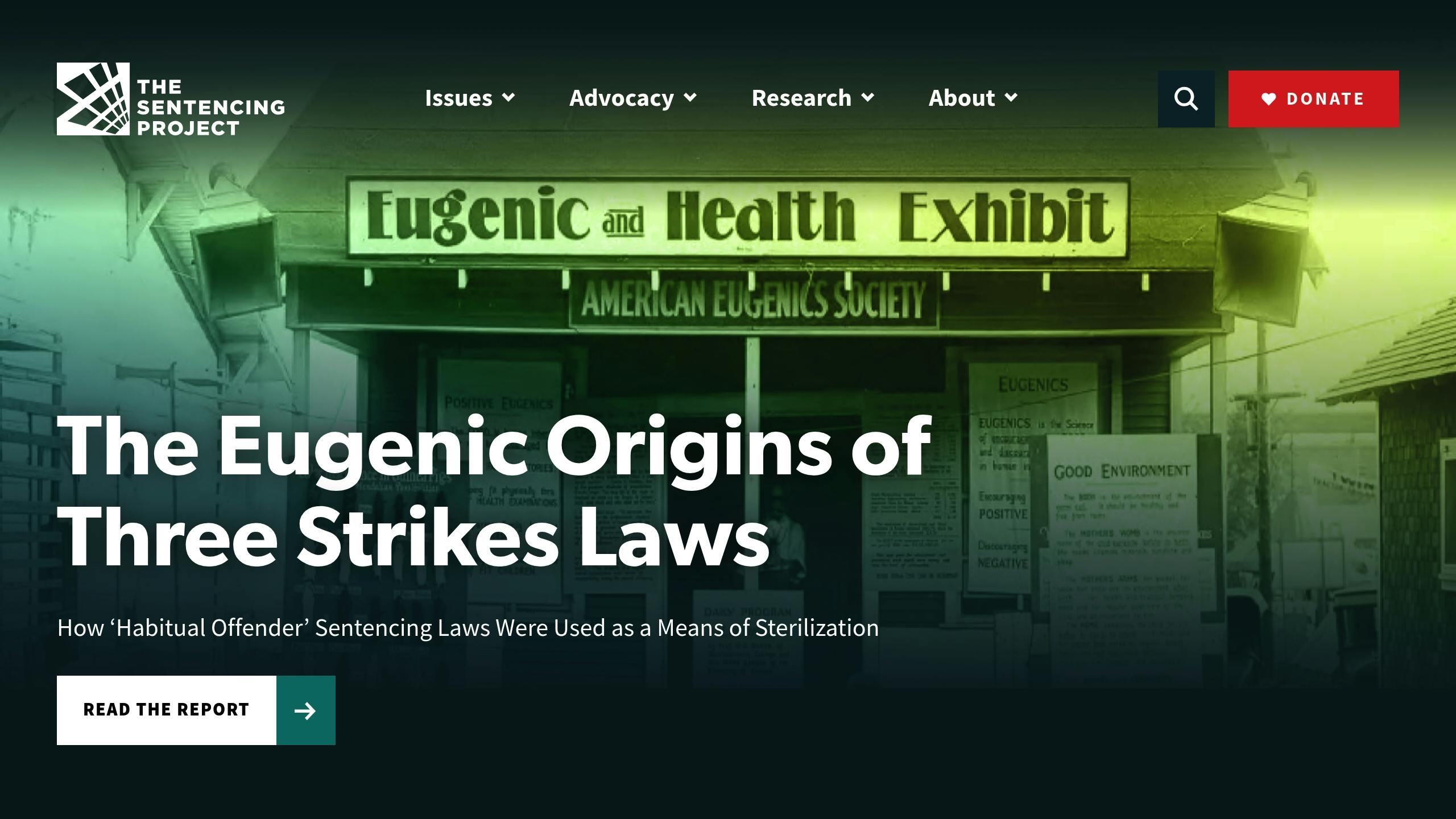
Established in 1986 in Washington, D.C., The Sentencing Project is dedicated to reforming sentencing practices in the United States through in-depth research. By highlighting systemic disparities, it pushes for meaningful policy changes.
Its main areas of focus include:
- Examining sentencing policies to uncover inequities
- Offering recommendations for legislative improvements
- Leveraging data to improve criminal justice practices
2. Vera Institute of Justice
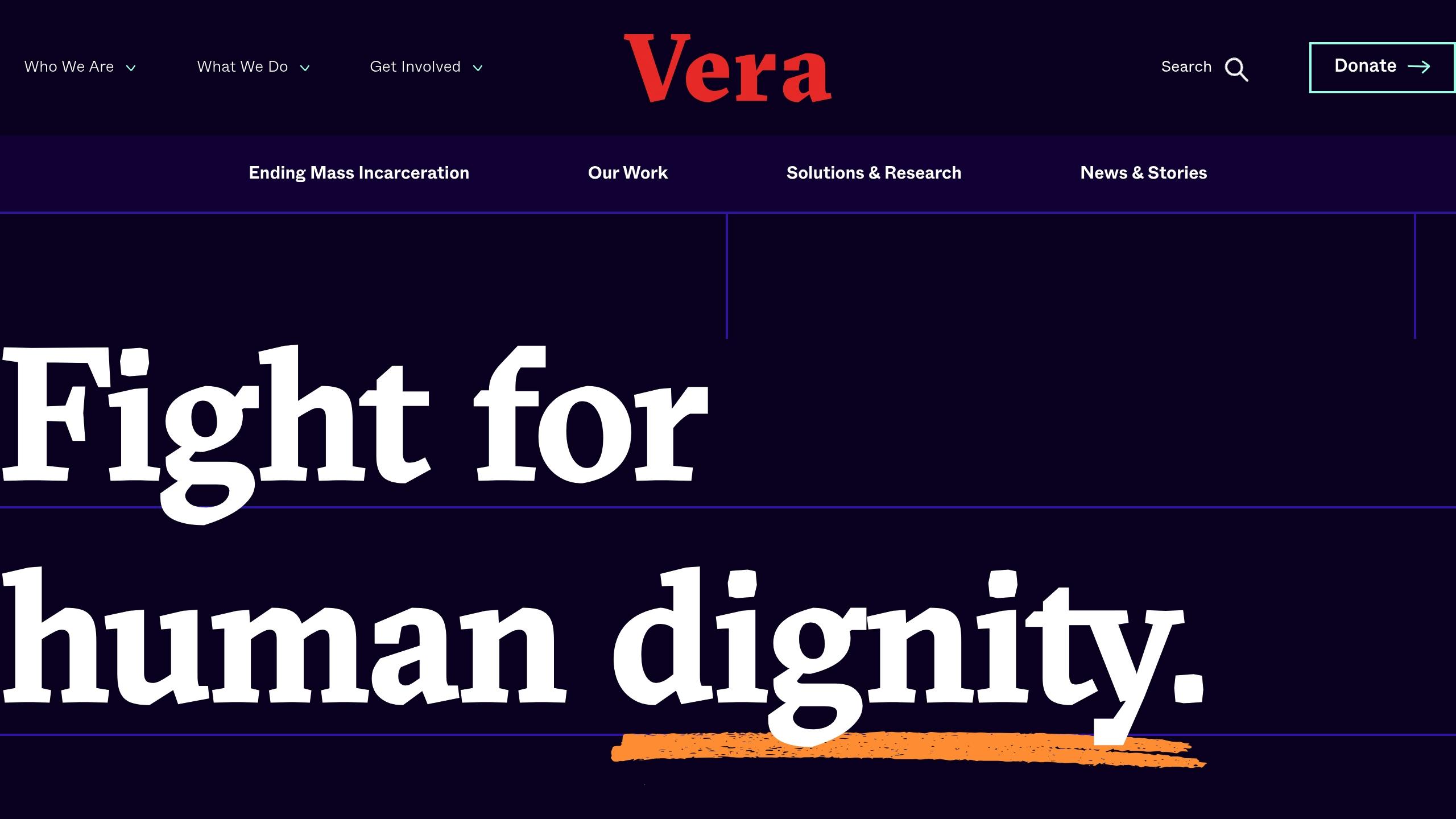
The Vera Institute of Justice focuses on prison reform by using research to address major challenges in the criminal justice system. They develop practical policy recommendations aimed at reducing prison populations, evaluating conditions in facilities, and supporting reform efforts. This work is done in collaboration with experts from corrections, healthcare, mental health, and local communities.
Their research has influenced policy discussions at both state and federal levels, offering a foundation for reform initiatives across the country, including in Georgia. These efforts align with the work of other organizations pushing for change nationwide.
3. Prison Policy Initiative
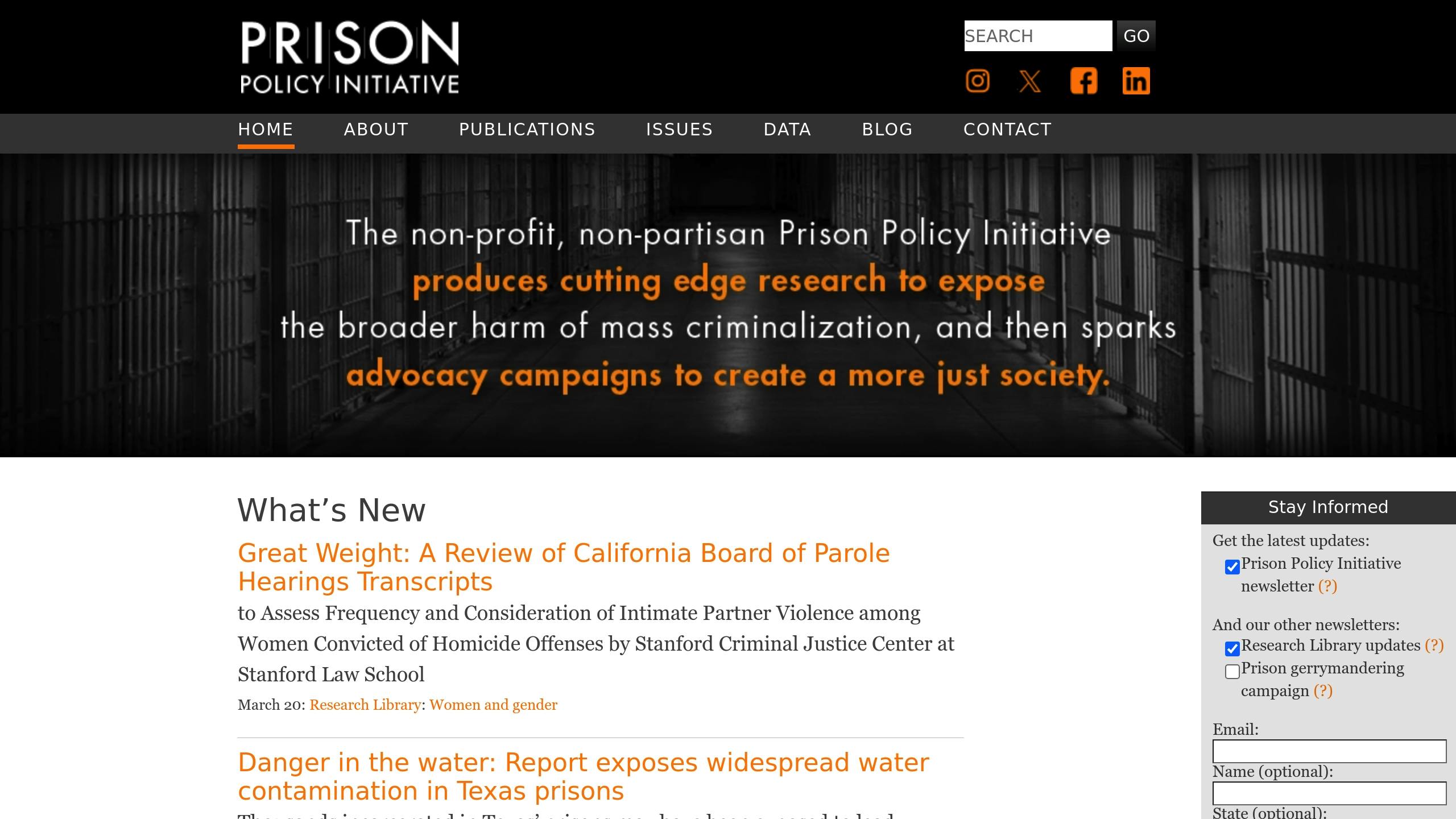
The Prison Policy Initiative (PPI) takes a data-focused approach to drive reform in the criminal justice system. By analyzing and presenting data on mass incarceration, PPI highlights its far-reaching effects. Through detailed statistical studies and clear visualizations, they make prison system trends easier to understand for both policymakers and the public. This work supports efforts to create informed, evidence-based policies for meaningful change.
sbb-itb-7858f51
4. Brennan Center for Justice
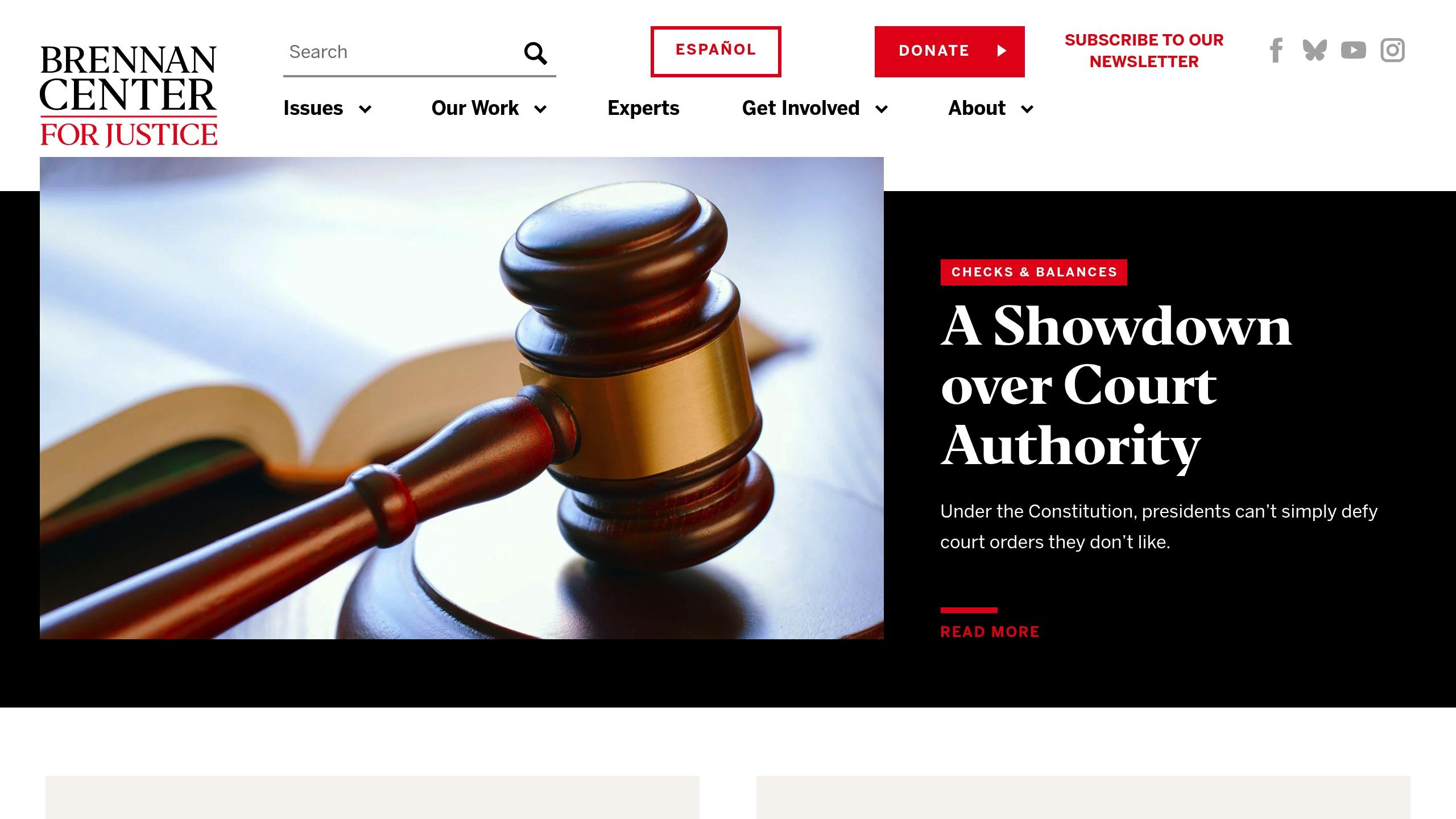
Housed at NYU School of Law, the Brennan Center for Justice focuses on reforming the criminal justice system through research and data analysis. Their goal is to reduce mass incarceration while maintaining public safety.
The center employs a variety of strategies, including:
- Policy Analysis: Evaluating legal systems through in-depth research.
- Legislative Reform: Creating model laws and offering policy suggestions.
- Data Insights: Sharing reports on prison populations, financial impacts, and outcomes.
This work aligns with broader efforts to reshape the justice system across the country.
5. Urban Institute‘s Justice Policy Center
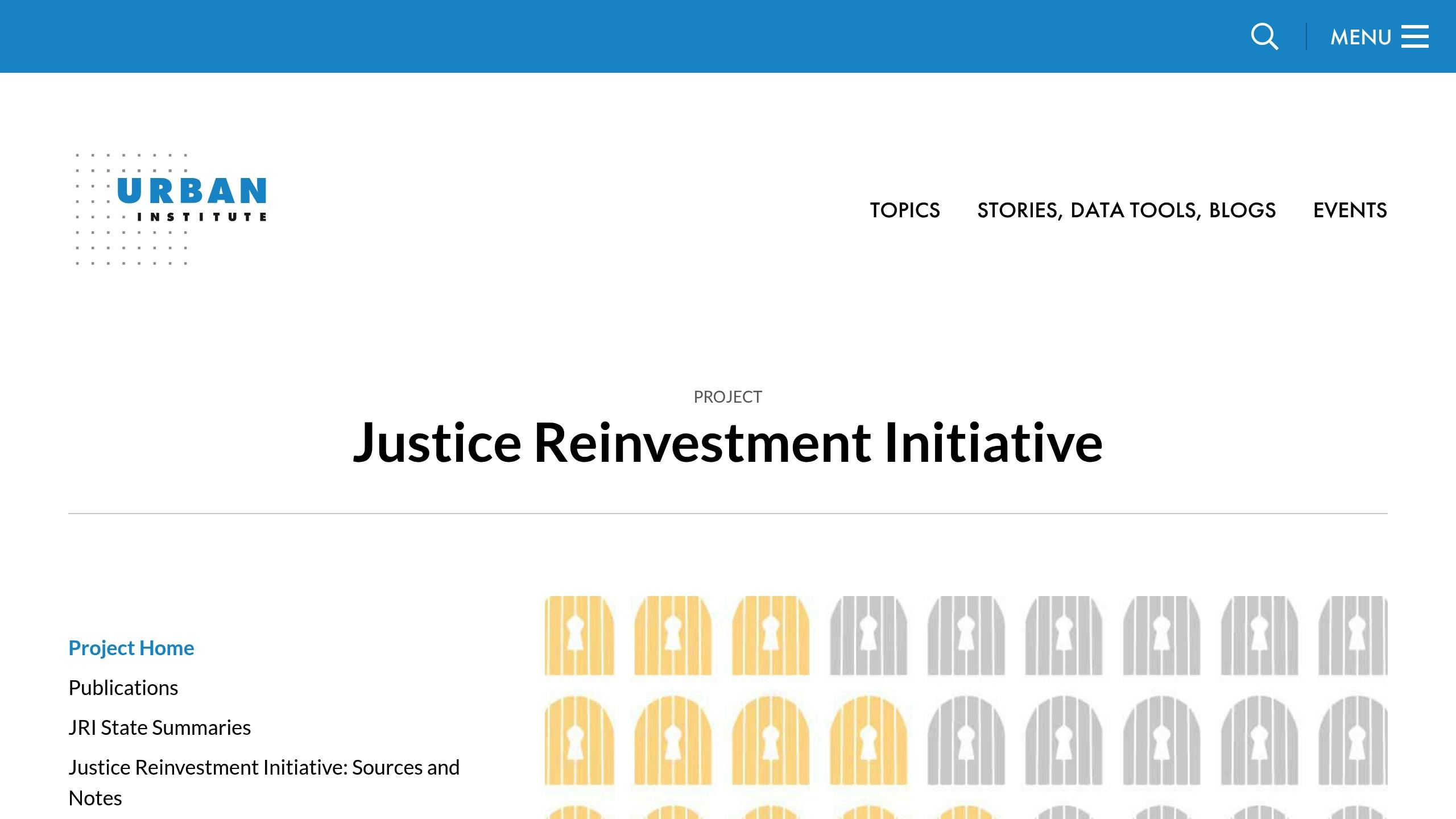
The Urban Institute’s Justice Policy Center showcases how data and research can shape meaningful reform. By blending in-depth analysis with actionable policy suggestions, the Center supports advocacy efforts that aim to create real-world impact.
The Center works closely with advocacy groups to document prison conditions, share evidence, and turn research into practical policy changes. This partnership bridges firsthand experiences with academic knowledge, helping to push forward reforms that matter. As Margaret Mead once said:
"Never doubt that a small group of thoughtful, committed citizens can change the world; indeed, it’s the only thing that ever has." – Margaret Mead (1901-1978)
This collaborative approach is a driving force behind the future of prison reform efforts.
6. Georgia Prisoners’ Speak

Georgia Prisoners’ Speak (GPS) is an advocacy group working to highlight the unsafe and unconstitutional conditions within Georgia’s prison system. Recent statistics reveal alarming figures: 330 deaths in 2024 and 265 in 2023, pointing to serious issues in the state’s prison facilities.
GPS uses three main approaches to push for reform:
-
Documenting Issues
GPS keeps records of key problems, such as corruption in the Georgia Department of Corrections, unsafe living conditions, medical neglect, overcrowding (including triple bunking), and retaliation against inmates. -
Engaging the Public
They utilize an AI-based tool that allows citizens to send personalized messages to legislators, ensuring public concerns about prison conditions reach decision-makers. -
Gathering Evidence
GPS collects firsthand accounts, along with photo and video evidence, to create detailed reports on constitutional violations and corruption.
Next Steps for Prison Reform
To drive change, a focused plan is crucial. While research and advocacy have set the stage, turning these insights into actionable policies remains a challenge. Progress depends on overcoming systemic hurdles and fostering collaboration between policy experts and advocacy groups.
Current Challenges
The prison system is grappling with pressing issues that demand immediate solutions.
Collaborative Opportunities
By working together, policy think tanks and advocacy groups can amplify their impact. Here’s how:
- Data-Driven Documentation: Think tanks can use firsthand accounts and evidence gathered by advocacy groups to create stronger, more grounded policy recommendations. This ensures reforms reflect actual conditions and experiences.
- Public Engagement Initiatives: Organizations are using AI tools to help citizens directly communicate with legislators about prison conditions, giving people a louder voice in the reform process.
- Strategic Awareness Campaigns: Social media and digital platforms play a key role in keeping prison reform in the public eye. Sharing regular updates about conditions sustains public pressure for change.
Action Framework for Reform
The following table outlines key areas of focus to turn collaboration into real progress:
| Priority Area | Implementation Strategy | Expected Impact |
|---|---|---|
| Documentation | Record and report on prison conditions | Support evidence-based policy recommendations |
| Public Engagement | Use digital tools for citizen-legislator contact | Amplify constituent voices to push for reform |
| Legislative Action | Present documented issues to policymakers | Encourage policy changes backed by evidence |
| Transparency | Regularly publish prison data and reports | Promote accountability and measure progress |
Progress depends on sustained teamwork. Policy think tanks bring research and policy know-how, while advocacy groups contribute critical on-the-ground insights. By combining these strengths and engaging the public, the path to meaningful prison reform becomes clearer.
